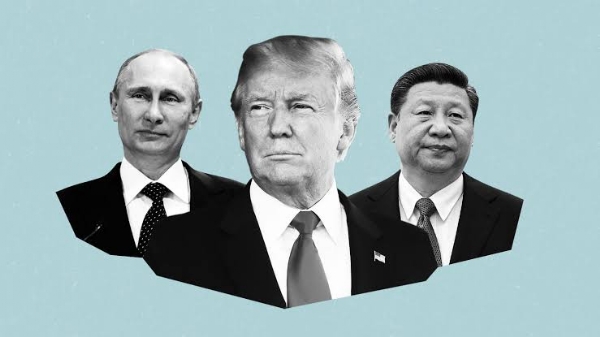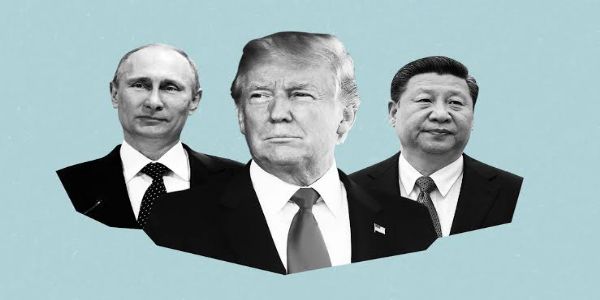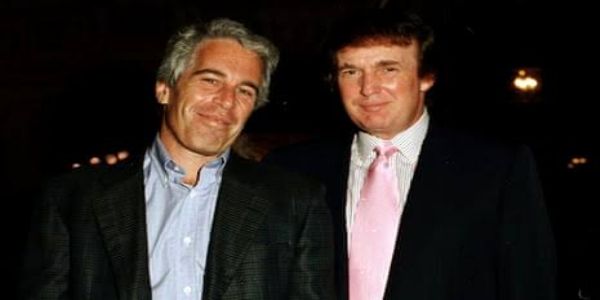
Washington DC, 3 September (H.S.): In a firm dismissal of rising global concerns, U.S. President Donald Trump has rejected the notion that the burgeoning diplomatic and military convergence of China, Russia, and their allies poses a substantive threat to American dominance on the world stage. Speaking from the Oval Office on Tuesday, Trump stressed his strong personal rapport with Chinese President Xi Jinping while asserting that China continues to depend on the United States far more than vice versa.
Asked about the apparent alliance forming between Beijing, Moscow, and Pyongyang, Trump responded plainly: “No. Not at all. China needs us more than we need them.” He reiterated his confidence in the unparalleled strength of the U.S. military, stating in a radio interview that neither China nor Russia would dare use their armed forces against America. “Believe me, that would be the worst thing they could ever do,” Trump warned.
These comments come as China prepares to host a grand “Victory Day” military parade in Beijing on Wednesday, marking the 80th anniversary of the end of World War II. The event aims to display China’s rapidly modernizing military capabilities, featuring cutting-edge weaponry such as new missile systems, advanced fighter jets, unmanned drones, and underwater combat vehicles. The parade’s high-profile attendance lineup includes Russia’s Vladimir Putin and North Korea’s Kim Jong Un, a move widely interpreted as a coordinated signal to Western powers alienated by these nations.
In recent weeks, China and Russia have intensified their strategic partnership, buttressed by growing economic ties and coordinated diplomatic efforts. At the Shanghai Cooperation Organisation summit earlier this month, Xi and Putin underscored their mutual opposition to what they term “hegemonism and power politics” — clear references to U.S. global influence. The two leaders also signed multiple agreements, including energy infrastructure projects like a new China-Russia gas pipeline, further entrenching their alliance.
Despite this mounting partnership, Trump maintained in various statements his skepticism of the threat they pose. He defended his tariff policies against China as necessary for protecting American industries, implicitly accepting any resultant diplomatic friction. However, he expressed frank disappointment in Putin, following the failure of their recent Alaska talks to produce a peace deal for Ukraine. “I’m very disappointed in President Putin,” Trump said, hinting at forthcoming U.S. measures intended to assist Ukrainians affected by the ongoing conflict.
Meanwhile, Ukrainian President Volodymyr Zelensky reported new Russian troop buildups along the frontline, underscoring the continuing volatility of the war despite international efforts. Zelensky declared that Putin remains resolute in his pursuit of military objectives and unwilling to be pressured into peace.
China, for its part, has avoided condemning Russia’s full-scale invasion and faces Western accusations of tacitly supporting Moscow’s war effort through dual-use material supplies and substantial purchases of discounted Russian oil—claims Beijing denies, insisting on “normal trade relations.”
Trump’s stance encapsulates a dual message: projecting confidence in American military and economic dominance while downplaying the geopolitical significance of the China-Russia-North Korea axis. Yet, global analysts caution that the strategic alignment of these powers represents a durable challenge to Western-led international order, urging Washington not to underestimate the implications of this emergent triad.
As Beijing flexes its military muscle and deepens its partnership with Moscow, the coming months will be critical in defining the contours of a multipolar world and assessing how the United States will respond to these shifting balances of power.
---------------
Hindusthan Samachar / Jun Sarkar







